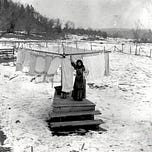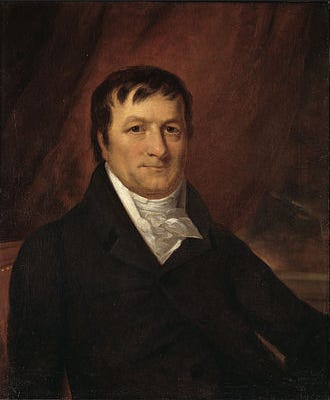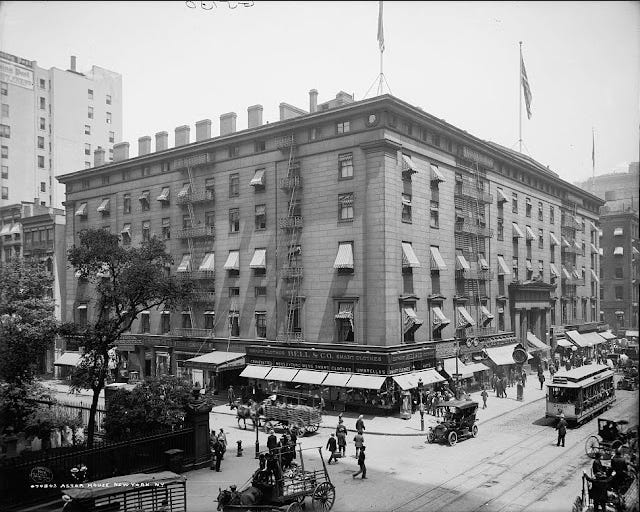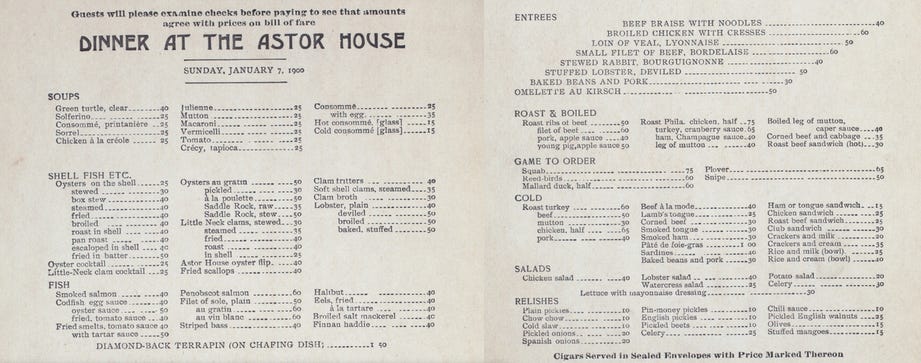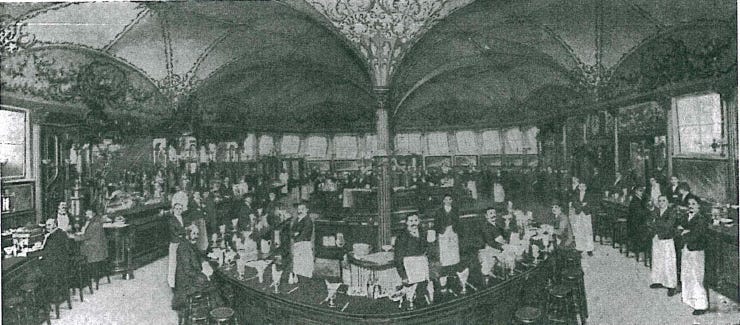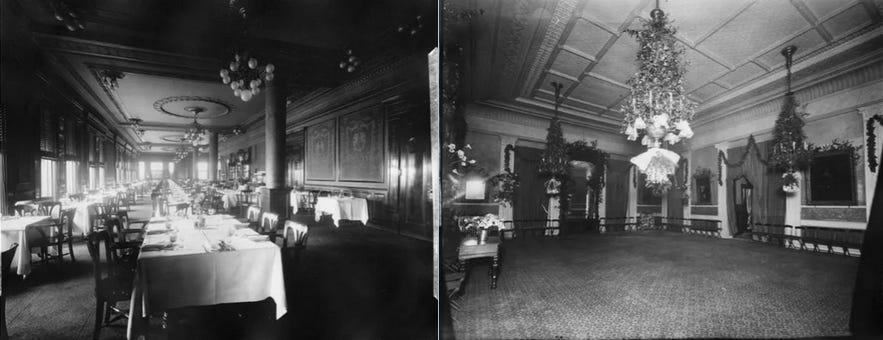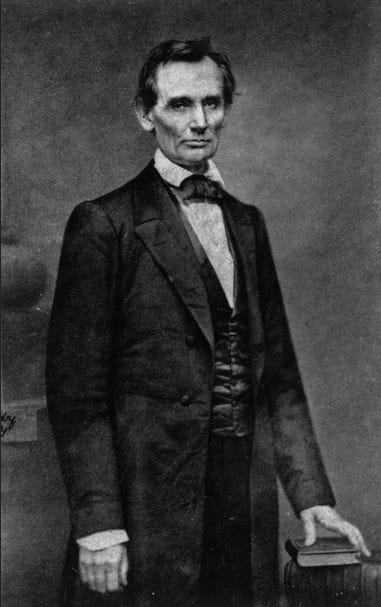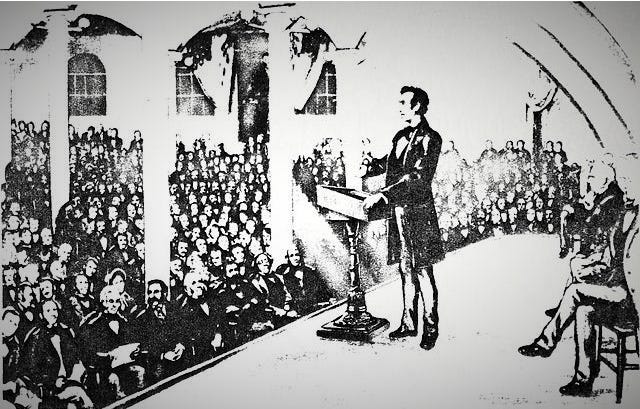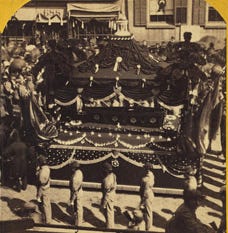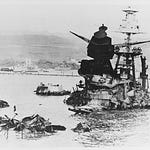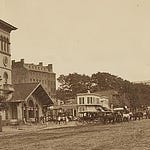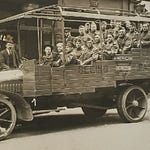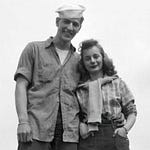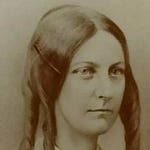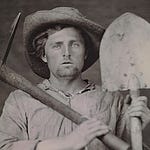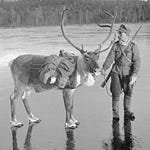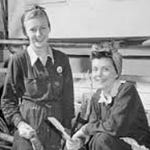a grand hotel
When fashion tastes changed and the demand for animal furs dropped, John Jacob Astor invested the fortune he had made from the fur trade in New York City real estate.
He became the city’s first real estate mogul.
Astor built the city’s first great hotel.
And like moguls are wont to do, he named it after himself.
The Astor House, on the corner of Broadway and Vesey Street in lower Manhattan, opened in 1836, and it quickly became the favorite of the rich and powerful.
The granite structure, with three hundred guest rooms, occupied a full city block.
And it was the height of luxury.
Baths and toilets were located on each floor — an unheard-of luxury at the time — with hot water piped up from a steam plant in the hotel basement.
Elsewhere in the basement, printers operated a private printing press, producing the hotel’s daily menus.
After a few years, Astor enclosed the hotel’s interior courtyard with a vaulted glass and cast-iron roof, creating a large saloon.
It had a mahogany bar and several separate dining areas.
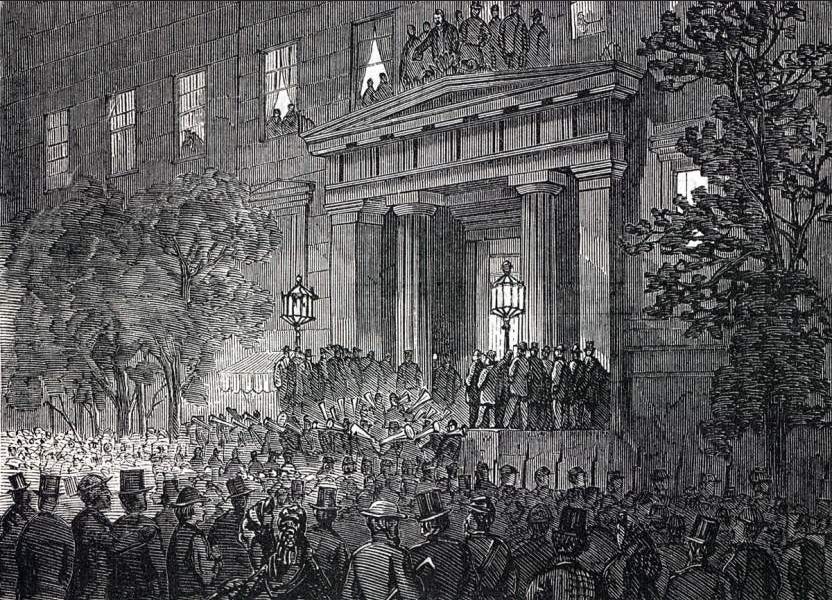
General Grant had a favorite table in the saloon which overlooked the church next door.
The restaurant’s head waiter said Grant had a ‘weakness for the hotel’s roast beef.’
Eighteen US presidents stayed at The Aster House over the course of its ninety-year life, a record among American hotels.
Among the most noteworthy were Abraham Lincoln’s two stays.
Both came at turning points in his political life.
The first was in February 1860, when he came to deliver a speech at Cooper Union Hall.
Lincoln arrived in New York two days early and spent his time at the hotel rewriting his address.
It is masterful.
Speaking to 1,500 notables in Cooper Union’s Great Hall, Lincoln declared his opposition to the spread of slavery to the western territories, the key issue in the 1860 election.
And he imparted timeless advice for perpetuating America’s democracy:
“Let us be diverted by none of those sophistical contrivances… such as groping for some middle ground between the right and the wrong.
“Let us have faith that right makes might,
“and in that faith, let us, to the end, dare to do our duty...”
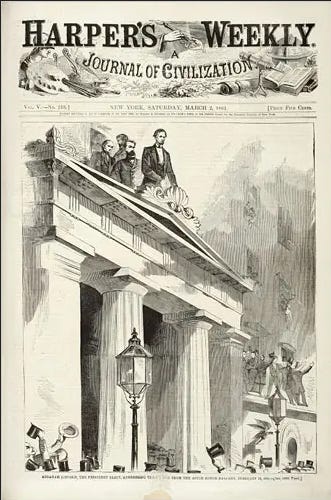
Lincoln would return to The Astor House on February 9, 1861, as he made his way from Springfield to Washington for his presidential inauguration.
There, he stood on the balcony above the hotel’s entrance portico and spoke to a crowd of forty thousand, pledging fidelity to the Constitution and the perpetuation of personal liberty.
Lincoln’s funeral procession would take him past the hotel four years.
******************************
I’ll see you tomorrow.
— Brenda


